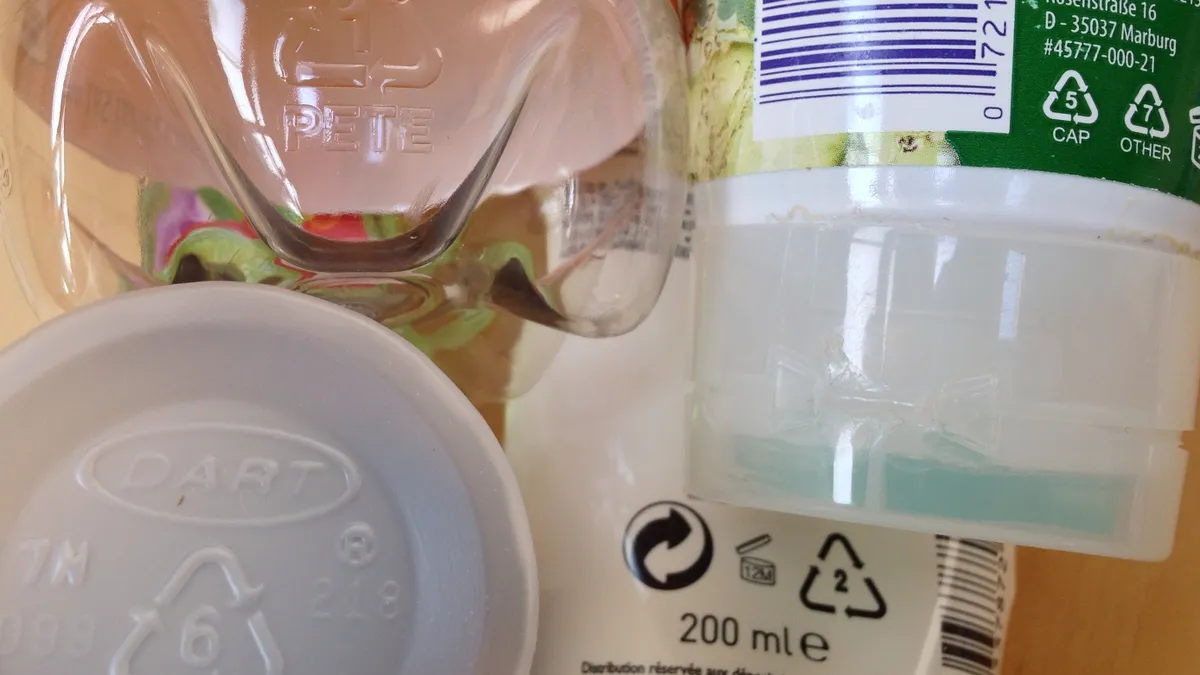Dive Brief:
- The Sustainable Packaging Coalition (SPC) found that 73% of the U.S. population has access to curbside recycling programs and 21% has access to drop-off programs. Recycling access was most prevalent in the Northeast and least prevalent in the West, due in part to population density. SPC commissioned the study, which was conducted by Resource Recycling Systems and Moore Recycling Associates.
- Within the 73% with curbside access, 53% are enrolled automatically and 20% must opt-in or sign-up through a subscription. Only about one-third of these people that aren't automatically enrolled were found to be participating in their local recycling programs.
- About 21% of the population lives in communities that provide access to curbside collection for all single-family and multi-family buildings.
Dive Insight:
SPC released a similar study on the availability of recycling for beverage containers last summer and has now taken that a step further by looking at the full spectrum of materials commonly recycled by residents. This is of particular interest for the SPC's How2Recycle program which looks at the availability of recycling for common products before certifying them with that label. The threshold for full eligibility is at least 60% of consumers should have access to a program that accepts the material and many commonly sold items such as rigid packaging, polystyrene foam products, plastic cutlery and paper ice cream tubs fell below the mark.
In addition to communicating this to residents, it's also key to make it convenient for them, which has been a main driver behind the single-stream push. Like others before it, this study found that single-stream is by far the most common type of program for single-family homes that have curbside access and at least 44% of these homes now have carts. A recent report from the Environmental Protection Agency (EPA) and The Recycling Partnership found that both elements can lead to more successful programs.
Providing convenient access is of course just one part of the larger equation and the SPC has been actively working with the recycling industry to help improve the quality of materials it receives. Getting higher volumes of material may not always be helpful to private or municipal operations if that material isn't recyclable or is of low value.















